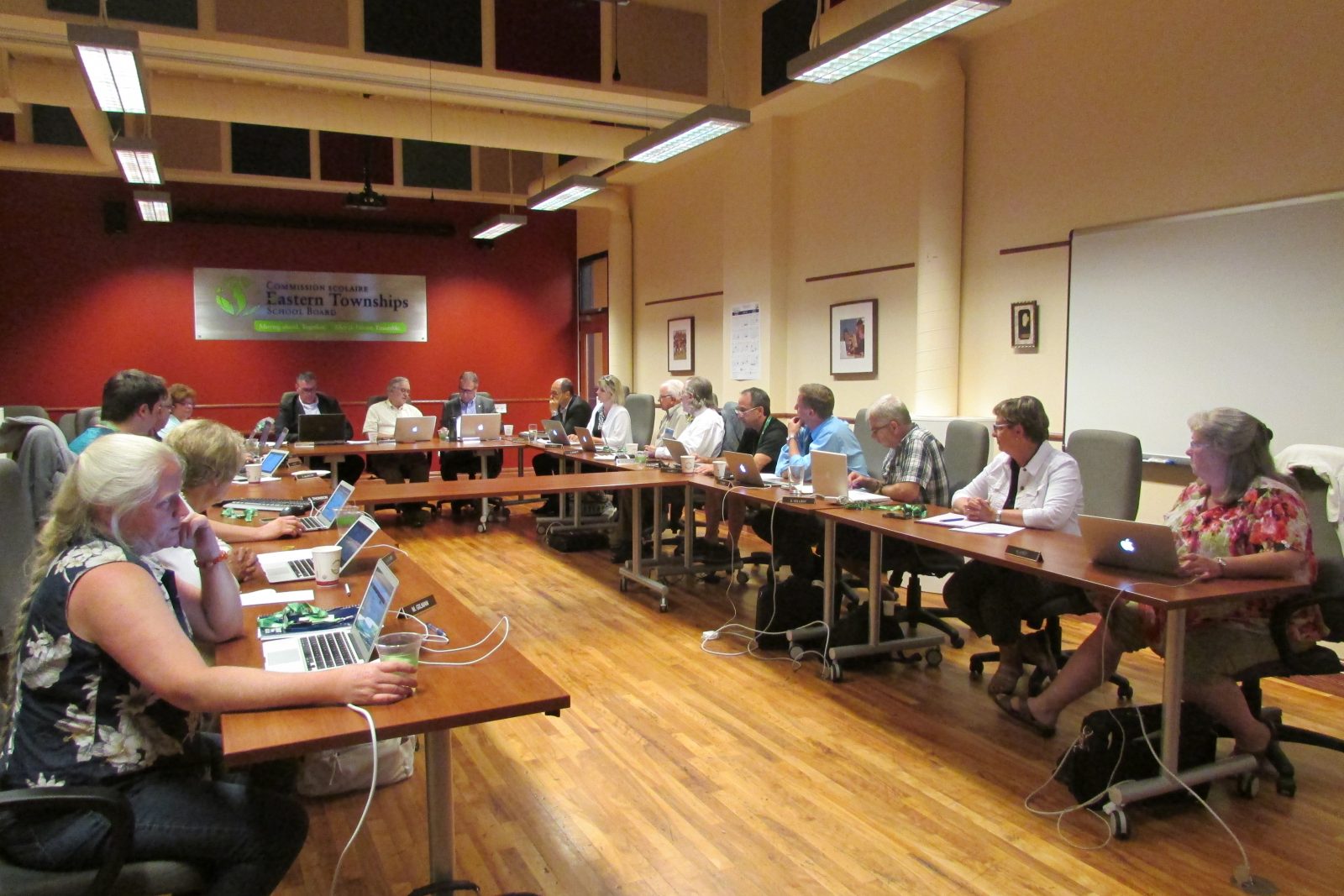An Elections Systems Study Panel (ESSP), formed in June to examine scenarios surrounding school board elections, made the recommendation yesterday that the system of universal suffrage be maintained for the election of commissioners within English school boards.
The panel was sponsored by the Quebec English School Boards Association (QESBA), English Parents’ Community Association (EPCA), the Quebec Community Groups Network (QCGN) and the Quebec Federation of Home and School Associations (QFHSA).
In total, the ESSP received 36 submissions for review, and interviewed 29 different organizations/groups/individuals during the four-month study.
The panel released a report to the public yesterday at a press conference in Montreal, outlining 13 recommendations related to school board elections.
“We heard very clearly that English boards and schools plan an essential role,” said the Honourable Marlene Jennings, who chaired the study panel.
“Our boards, our commissioners, our schools are the lifeblood of the English community,” Jennings said, “They are the only institutions we still control.”
While the main recommendation of the panel was to maintain universal suffrage, a number of additional recommendations were made in an effort to improve voting methods and broaden representation on school boards.
According to Jennings, the panel recommends that parent commissioners be given the same standing and voting rights as other commissioners. She also said that the number of parent commissioners should be increased to no less than six. The current status quo is three or four, depending on the size of the board.
Another recommendation was that boards do away with the traditional voting method, and instead use telephone, online or mail in ballots only. Jennings said the panel heard from experts who suggested methods other than onsite balloting could make voting more accessible, and also represent significant savings.
When asked about the security of online, telephone or mail-in voting, Jennings said provincial and federal political parties are already using the system to elect their leaders, and that there is a secure method in place to confirm the identity of voters.
The panel also addressed the concerns expressed by voters in the most recent school board elections.
A recommendation was made that the voter registration process be modified so that English minority taxpayers who pay into the English School Board system be automatically registered to the English School Board voting list. Also, graduates of English public high schools should be automatically registered to the English school board voting list, along with English minority youth who turn 18. Parents of children who have graduated from an English public high school should also automatically be registered to the list, according to Jennings.
Jennings went on to say that, should the government not implement the recommendation to hold elections via online, telephone or mail, that voters have the right to register to vote on site the day of a school board election.
In the interest of developing future leaders in the English community, the panel recommended that school boards consider including Cycle II secondary students and eventually allowing them to participate, possibly with voting rights, on the council of commissioners.
Mandatory training and ongoing professional development among commissioners and governing board members at the school level was recommended, to offer a clear understanding of their roles, responsibilities and duties. It was also suggested that ethical and conflict of interest guidelines be included in the Education Act, along with measures to ensure adherence.
“We sincerely believe that if the government implements the recommendations, it will improve governance in English School boards immensely,” Jennings said.
While the panel was sponsored by interest groups outside the government, Jennings said that after a meeting with Yves Bolduc, the Minister of Education, in July where the broad strokes of the panel were discussed, he seemed open to hearing the recommendations.
Though not part of the panel’s mandate, school board taxation was highlighted as an important issue. A province wide review of the method of collection, as well as an analysis and proposal of a fair and equitable system was suggested.
“There’s plenty of food for thought,” said Mike Murray, Chairman of the Eastern Townships School Board Council of Commissioners.
Murray said he was surprised by the ingenuity of some of the recommendations, referring to the changes suggested for the eligible voters’ list, as well as the use of online voting.
That combination could have a big impact on accessibility and voter participation, he said.
Editor’s note: To read the full Election Systems Study Panel Report, see the attached file below.
Study panel recommends universal suffrage be maintained





